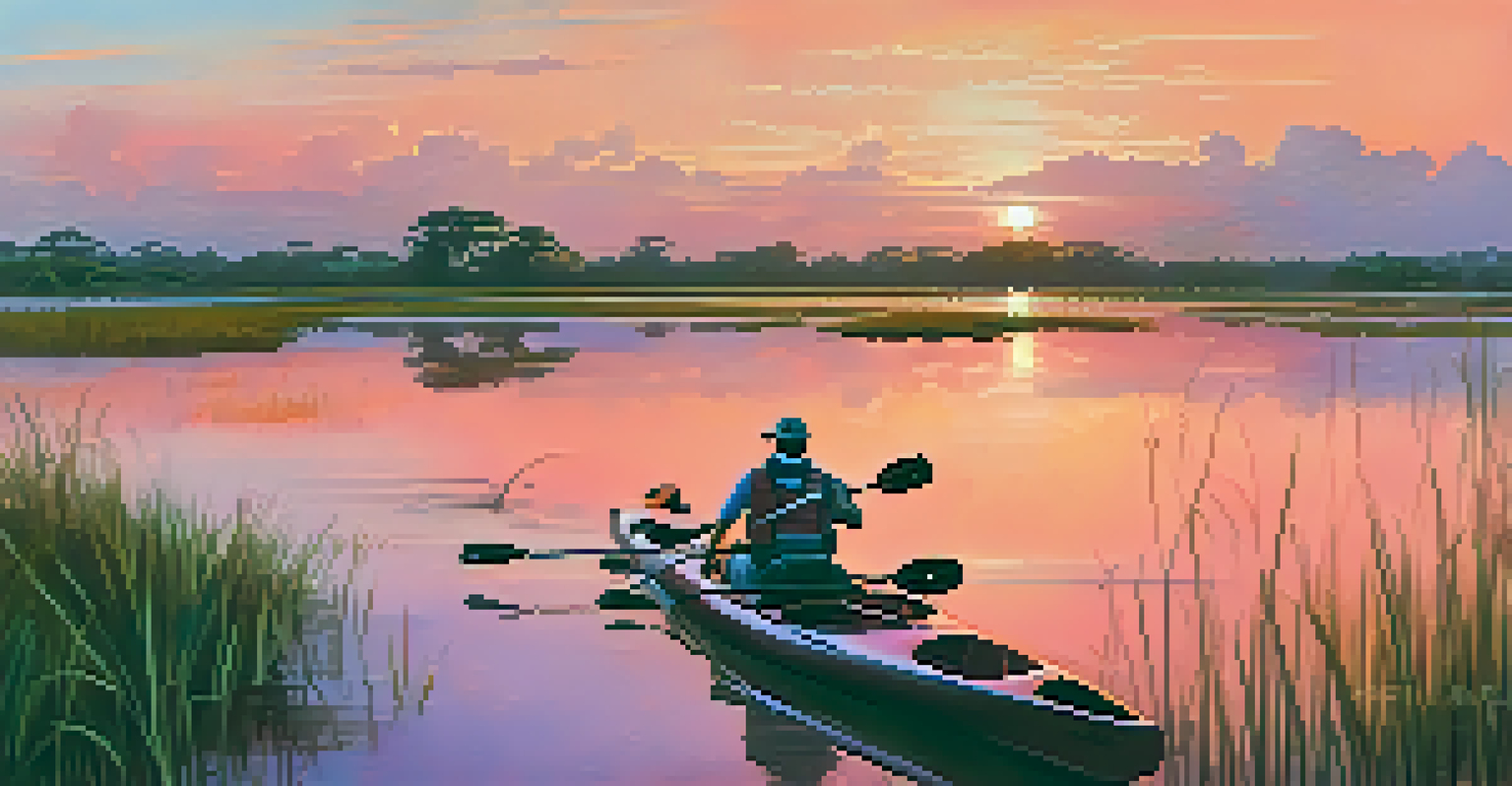Ecotourism in Brazil: Why Eco-Lodges Are a Smart Choice

Understanding Ecotourism and Its Importance
Ecotourism is a responsible travel approach that emphasizes environmental conservation and cultural appreciation. It's not just about visiting beautiful places; it's about making a positive impact on the communities and ecosystems you encounter. In Brazil, a country rich in biodiversity and vibrant cultures, ecotourism plays a crucial role in sustainable development.
Travel is the only thing you buy that makes you richer.
By choosing ecotourism, travelers can contribute to the preservation of natural resources while enjoying authentic experiences. For example, a trip to the Amazon rainforest can help fund local conservation efforts and support indigenous communities. This way, tourists become part of the solution rather than adding to the problems.
Moreover, ecotourism helps raise awareness about environmental issues, encouraging visitors to adopt more sustainable practices in their everyday lives. It’s a win-win situation where both travelers and the environment benefit.
The Rise of Eco-Lodges in Brazil
Eco-lodges have gained traction in Brazil as they provide unique accommodations that prioritize sustainability. These lodges are often constructed using local materials and designed to blend seamlessly with their surroundings. Imagine waking up in a cozy cabin surrounded by lush foliage, where every detail has been considered to minimize environmental impact.

The growth of eco-lodges is a response to the increasing demand for sustainable travel options. Travelers today are more conscious of their choices and want experiences that align with their values. Eco-lodges not only offer comfort and luxury but also a chance to connect with nature and local culture.
Ecotourism Benefits Local Communities
Ecotourism positively impacts local economies by creating jobs and supporting community development initiatives.
In Brazil, eco-lodges can be found in some of the most stunning locations, from the Amazon rainforest to the beaches of Bahia. This diversity allows travelers to choose experiences that resonate with them while supporting responsible tourism.
Benefits of Staying in Eco-Lodges
Staying in eco-lodges offers numerous benefits that go beyond a typical hotel experience. First and foremost, they provide an opportunity to immerse yourself in nature, often with breathtaking views and serene surroundings. Imagine sipping your morning coffee while watching monkeys swing through the trees; it’s an experience that stays with you long after your trip.
The greatest threat to our planet is the belief that someone else will save it.
Additionally, eco-lodges often prioritize local cuisine, showcasing the flavors of the region through fresh, organic ingredients. This not only supports local farmers but also allows travelers to take part in a culinary journey that reflects the culture of the area. Eating local can be a delightful way to connect with the destination.
Lastly, by choosing eco-lodges, you are directly supporting sustainable practices and conservation efforts. Many lodges engage in initiatives like reforestation, wildlife protection, and community education, ensuring that your stay contributes to preserving the environment for future generations.
Ecotourism's Impact on Local Communities
One of the most significant advantages of ecotourism is its positive impact on local communities. Eco-lodges often employ local staff, which helps create jobs and boost the local economy. This means that your stay not only enriches your life but also provides essential income for families in the area.
Moreover, many eco-lodges engage in community development projects, such as education and health initiatives. When travelers choose these accommodations, they support businesses that are committed to improving the quality of life for residents. This creates a cycle of positivity that benefits everyone involved.
Eco-Lodges Enhance Sustainable Travel
Eco-lodges offer unique accommodations that prioritize sustainability and provide travelers with authentic experiences in nature.
By prioritizing local culture and traditions, eco-lodges also help preserve the unique heritage of Brazil. They offer visitors a chance to learn about local customs and practices, fostering a deeper understanding and appreciation of the region.
Exploring Brazil’s Diverse Ecosystems
Brazil is home to some of the most diverse ecosystems in the world, from the Amazon rainforest to the Pantanal wetlands. Each eco-lodge provides a unique opportunity to explore these habitats and witness the incredible biodiversity firsthand. Imagine trekking through the Amazon, spotting exotic wildlife, and learning about the delicate balance of the ecosystem.
Staying at an eco-lodge allows you to participate in guided tours led by knowledgeable local experts. These guides not only enhance your experience but also educate you about the significance of the environment and the importance of conservation. It's an adventure that goes beyond mere sightseeing.
Additionally, eco-lodges often organize activities like birdwatching, kayaking, or hiking, all designed to help you connect with nature. These experiences foster a deeper appreciation for the natural world and inspire a commitment to its preservation.
Choosing the Right Eco-Lodge in Brazil
When selecting an eco-lodge, it's essential to consider what aligns best with your travel goals. Do you want to focus on wildlife conservation, cultural experiences, or relaxation in nature? Different eco-lodges cater to various interests, so taking the time to research can greatly enhance your experience.
Look for lodges that are certified by recognized sustainability organizations. This certification indicates a genuine commitment to eco-friendly practices and community involvement. Reviews from previous guests can also provide valuable insights into the quality of the experience and the level of service.
Diverse Ecosystems Await Exploration
Brazil's rich ecosystems, from the Amazon to the Pantanal, provide travelers with opportunities to connect with nature and learn about conservation.
Finally, don’t hesitate to reach out to the lodge for more information. A good eco-lodge will be happy to share details about their sustainability practices and how your stay supports local initiatives. This transparency is a reassuring sign that you're making a responsible choice.
The Future of Ecotourism in Brazil
As the world becomes increasingly aware of environmental issues, the future of ecotourism in Brazil looks promising. More travelers are seeking authentic experiences that allow them to connect with nature and contribute to its conservation. Eco-lodges are poised to play a vital role in this growing trend.
Innovations in sustainable practices, such as renewable energy sources and waste reduction programs, are continually emerging. Many eco-lodges are adapting to these changes, ensuring they remain leaders in responsible tourism. This evolution not only benefits the environment but also enhances the guest experience.

Ultimately, the future of ecotourism in Brazil is about building a sustainable relationship between travelers, local communities, and the environment. By choosing eco-lodges, visitors can be part of this exciting journey toward a more sustainable future.